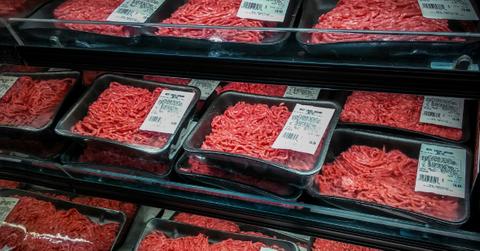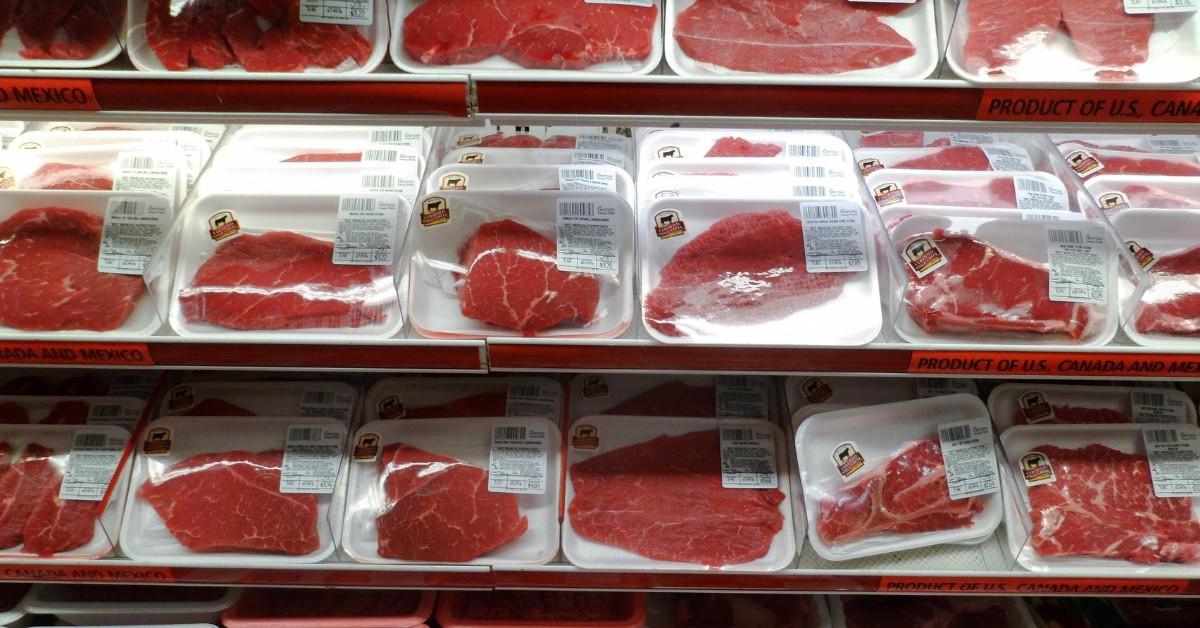UTIs Are on the Rise — and Meat May Be to Blame
The meat you eat can not only introduce the bacteria that causes UTIs, it can also make it harder to treat.
Published Aug. 30 2024, 11:23 a.m. ET

If you've never experienced the pain of a urinary tract infection (UTI), consider yourself lucky. The condition — which can present with symptoms like bladder pressure or burning when peeing — can be intense, and it requires a course of antibiotics to be treated. Unfortunately for those suffering from the effects of a painful UTI, those antibiotics may now be less effective than they've been in years prior.
This is largely due to the fact that people who eat meat are already getting a pretty hefty dose of antibiotics in their diet without even knowing it, creating a legion of super germs and bacteria.
Now, experts are saying that our overexposure to antibiotics isn't just making these infections harder to fight, it may actually be part of the reason people are getting these infections in the first place, specifically thanks to the meat people eat. Continue ready to find out how your dinner could be making you sick.
That said, this article is not health advice — please consult with a physician for any health issues or questions.

UTIs are on the rise thanks to the bacteria found on meat.
E. coli, a bacteria that is commonly found on processed meat products, is reportedly to blame for the rise in UTIs across the U.S. According to a 2023 study out of George Washington University, an estimated 640,000 UTIs a year are caused by meat products. And while it's not exactly new information that E. coli can be behind foodborne illnesses like diarrhea and other types of stomach upset, researchers are surprised to learn its relationship to urinary tract infections as well.
That's because much of the meat sold in supermarkets is teaming with the bacteria. Not only that, but it appears that these strains of E. coli are stronger than ever, something that can be blamed on the overuse of antibiotics, which kills off weaker germs and bacteria, leaving super cells behind.
And once these hardier germs take up residence in our intestines, experts believe they can spread to other areas of the body like the urinary tract, sometimes just by doing something as simple as wiping after going to the bathroom.
UTIs are caused by the introduction of bacteria like E. coli into the urethra. From there, the bacteria can spread, causing infections in other areas like the kidneys and bladder. And while a shortened urethra does make females more likely to experience the painful condition — nearly half of all women, or 10 in 25, will experience a UTI at least once, according to Newsweek — anyone can get one.
Can eating meat cause a UTI?
The short answer is yes, your diet can introduce E. coli into your urethra, causing a UTI to develop.
"Eating meat that has been heavily treated with antibiotics may be contributing to increasing rates of antibiotic resistance as the human microbiome is being influenced by meat consumption," according to urologist and urogynecologist Michelle Van Kuiken, who spoke with National Geographic.
That means that if you're prone to UTIs, or simply want to avoid the risk, switching to a plant-based diet could go a long way in helping you stay healthy.
Can going vegan help you avoid UTIs? How to prevent UTIs:
A small step in avoiding the antibiotic strains of E. coli could be trying to stick to a diet composed of foods marked "organic" or "antibiotic-free," according to the New York Post.
To take things further, you'll want to stay away from animal products — the E. coli populations in an animal's own intestines can contaminate their meat after they've been slaughtered — and instead opt for vegetarian or vegan products instead.
Additionally, you'll want to adopt proper health and hygiene practices. That means urinating after intercourse, washing your hands, wiping from front to back, and staying hydrated. Because if these hardier strains of E. coli are even more difficult to treat, prevention may prove to be the best tactic to take. But most importantly, make sure to speak with your doctor regarding any health concerns.